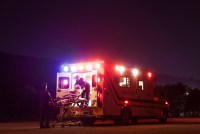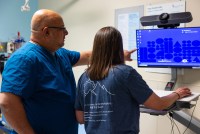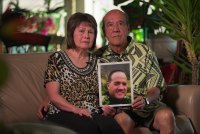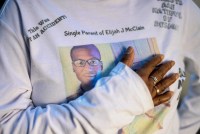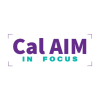As Foundation for ‘Excited Delirium’ Diagnosis Cracks, Fallout Spreads
Major policy changes and disavowals have made this a watershed year for curbing the use of the discredited “excited delirium” diagnosis to explain deaths in police custody. Now the ripple effects are spreading across the country into court cases, state legislation, and police training classes.
Why It’s So Tough to Reduce Unnecessary Medical Care
Treatments that don’t help patients, and may even harm them, are difficult to eliminate because they can be big sources of revenue.
Doctors Abandon a Diagnosis Used to Justify Police Custody Deaths. It Might Live On, Anyway.
The American College of Emergency Physicians agreed to withdraw its 2009 white paper on excited delirium, removing the only official medical pillar of support left for the theory that has played a key role in absolving police of culpability for in-custody deaths.
Police Blame Some Deaths on ‘Excited Delirium.’ ER Docs Consider Pulling Plug on Term.
The American College of Emergency Physicians will vote in early October on whether to disavow its 2009 research paper on excited delirium, which has been cited as a cause of death and used as a legal defense by police officers in several high-profile cases.
Pot Boom Wakes Sleepy Dinosaur, Colorado
A small town close to the Colorado-Utah state line strikes it rich with marijuana sales.
Community With High Medical Debt Questions Its Hospitals’ Charity Spending
Pueblo, Colorado, residents have higher-than-average medical debt, while the city’s two tax-exempt hospitals provide relatively low levels of charity care.
Teens With Addiction Are Often Left to Detox Without Medication
Facilities that offer medically managed substance use treatment for patients under 18 are few and far between in the United States. A Denver hospital is trying to help fill the gap.
As Nonprofit Hospitals Reap Big Tax Breaks, States Scrutinize Their Required Charity Spending
Nonprofit hospitals avoid paying taxes if they provide community benefits such as charity care. More states are examining that trade-off, scrutinizing the extent of hospitals’ spending on their communities.
At Least 1.7M Americans Use Health Sharing Arrangements, Despite Lack of Protections
A new report boosts the estimated number of people enrolled in plans whose members — usually brought together by shared religious beliefs — pay one another’s health costs.
This Panel Will Decide Whose Medicine to Make Affordable. Its Choice Will Be Tricky.
Colorado’s new Prescription Drug Affordability Board could cap what health plans and consumers pay for certain medications starting next year. The process will pit patient groups against one another.


